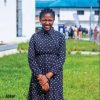 Dr. Ugonna Ajoku is the Founder of ‘Cancer Speaking’, a Non-Profit Organisation with a vision to activate a cancer conscious society and help reverse the steep decline in the overall survival rates of cancer in Africa. She is also the coordinator of the Dew Drops Cancer Support Group powered by Lakeshore Cancer Center in affiliation with Roswell Park Cancer Institute, Buffalo, New York. Many centuries after cancer was discovered, we are still battling with its growth. Every day, we hear about advancements in clinical trials and newer drugs, but every day the death rates remain on the rise. Every 4th of February, is World Cancer day and it is celebrated worldwide. In this interview, Ugonna Ajoku, a board certified medical doctor with over five years’ experience in cancer awareness, advocacy and treatment, shares with UGOCHI MBA ways to reduce the risk of having cancer.
Dr. Ugonna Ajoku is the Founder of ‘Cancer Speaking’, a Non-Profit Organisation with a vision to activate a cancer conscious society and help reverse the steep decline in the overall survival rates of cancer in Africa. She is also the coordinator of the Dew Drops Cancer Support Group powered by Lakeshore Cancer Center in affiliation with Roswell Park Cancer Institute, Buffalo, New York. Many centuries after cancer was discovered, we are still battling with its growth. Every day, we hear about advancements in clinical trials and newer drugs, but every day the death rates remain on the rise. Every 4th of February, is World Cancer day and it is celebrated worldwide. In this interview, Ugonna Ajoku, a board certified medical doctor with over five years’ experience in cancer awareness, advocacy and treatment, shares with UGOCHI MBA ways to reduce the risk of having cancer.
There has been a rise in cancer related deaths in Nigeria, why is this so?
Cancer kills more people every year than AIDS, Malaria and Tuberculosis combined. In 2018, the World Health Organisation said that there were 116,000 new cases of cancer in Nigeria and that 41,000 died from it. These are the ones that made it into the registry. There are so many undocumented cases and the picture is indeed worse than projected.
What is the reason for the increase in these deaths?
Majority of cancer cases presented in Nigerian hospitals are in advanced stages where there’s little or no benefit with treatment. This is largely due to a high poverty rate, high cost of cancer screening and treatment, absence of widely available information on the early signs and symptoms of cancer, late diagnosis, misdiagnosis, undefined referral processes, unavailability of infrastructure and poor healthcare seeking behaviours due to religious and cultural beliefs. What then are we left with?
What steps have been taken to curb the seemingly prevalent cancer issues?
Certain steps have been taken to address some of these issues. In 2018, the Federal Ministry of Health launched a cancer control plan, a product of extensive cross-sectoral collaboration involving the government, academia, bilateral and multilateral organisations and civil society, detailing the necessary cancer control efforts for the country to implement within the next five years and beyond. The NHIS has also announced that certain cancer treatments and surgeries are now covered by the plan however, not everyone has access to this and majority of the patients still pay out of pocket.
How can people prevent themselves from having cancer?
In the face of this seemingly insurmountable challenges, Prevention is better than cure, needs to become our watchword. You can reduce your cancer risk by avoiding the use of tobacco. Using any type of tobacco puts you on a collision course with cancer. Smoking has been linked to various types of cancer. Even if you don’t use tobacco, exposure to second hand smoke increases your risk of lung cancer. Also, ensure a healthy diet; plenty of fruits and vegetables and limit your consumption of processed meat. You should also maintain a healthy weight and be physically active. For substantial health benefits, strive to get at least 150 minutes a week of moderate aerobic activity or 75 minutes a week of vigorous aerobic activity.
Protect yourself from the sun. Avoid midday sun, between 10 a.m. and 4 p.m., when the sun’s rays are strongest. When you’re outdoors, stay in the shade as much as possible.
What other necessary steps should we take to prevent this scourge?
Get vaccinated. Cancer prevention includes protection from certain viral infections like Hepatitis B, which can increase the risk of developing liver cancer and Human papillomavirus (HPV), a sexually transmitted virus that can lead to cervical and other genital cancers as well as squamous cell cancers of the head and neck. Then, avoid risky behaviour. Another effective cancer prevention tactic is to avoid risky behaviour that can lead to infections that might increase the risk of cancer. Such behaviours include, having unsafe sex, sharing needles among others. Finally, carry out routine screening. Regular self-examinations and screenings for various types of cancers — such as cancer of the skin, colon, cervix and breast — can increase your chances of discovering cancer early, when treatment is most likely to be successful.
Any hope for a cure?
Our hope for a cure, howbeit slim, is all we have to hold on to. Early detection saves lives. It still is key. So in commemoration of the World Cancer Day 2020, we reiterate our commitment to supporting the fighters, admiring the survivors, honoring the taken and never ever giving up hope.



































